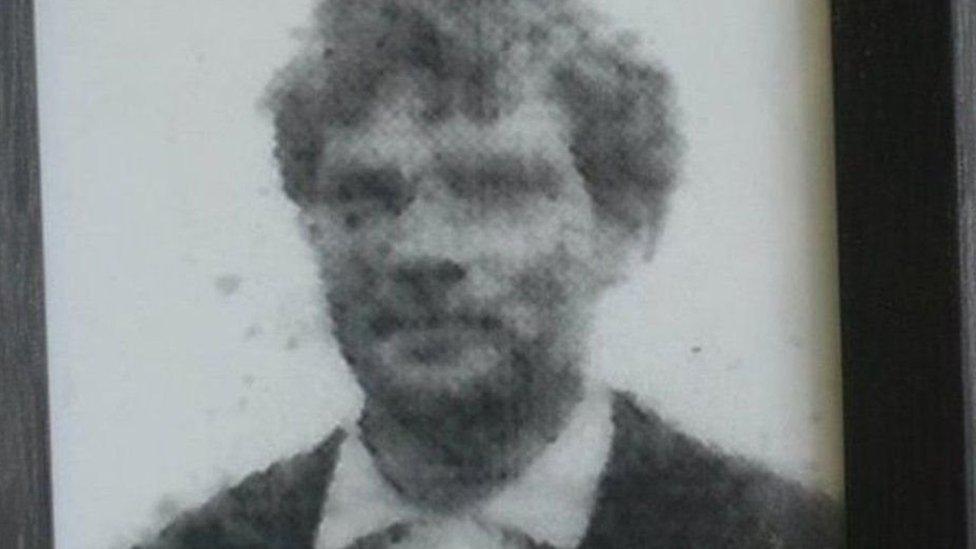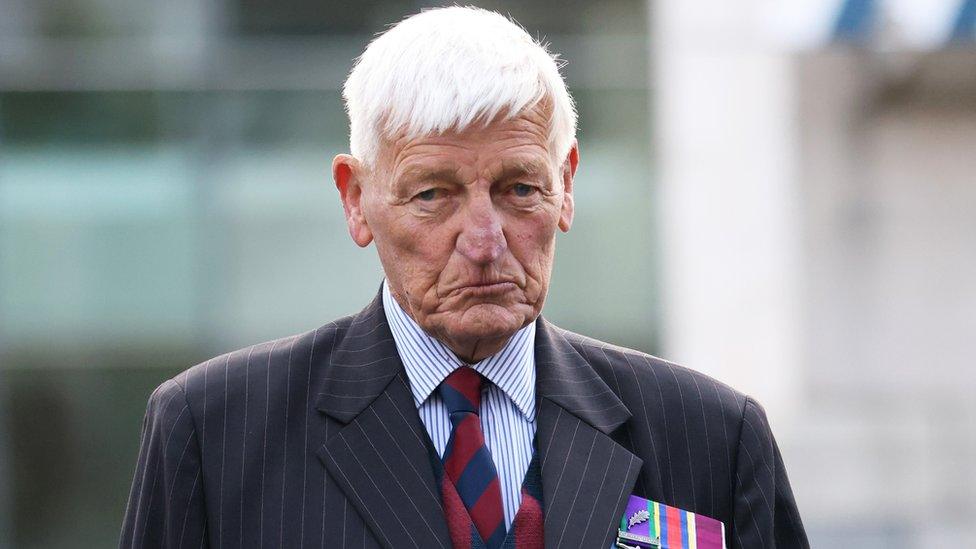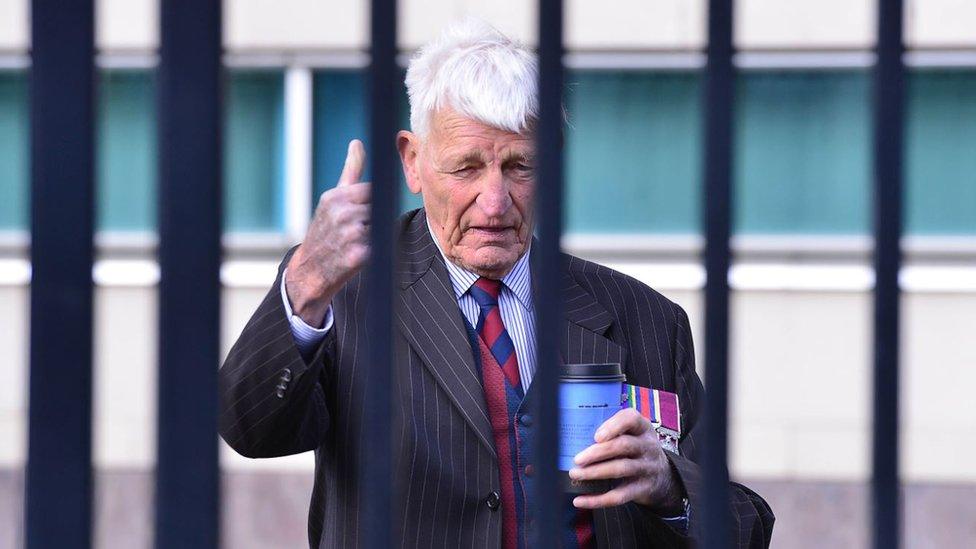Dennis Hutchings: Trial of former soldier could conclude 'next week'
- Published

Dennis Hutchings arriving at the Crown Court in Belfast on Monday
The trial into the fatal shooting of a man in County Tyrone 47 years ago could be concluded as early as next week.
Mr Justice O'Hara said the prosecution case against former soldier Dennis Hutchings could be completed by Wednesday.
Mr Hutchings, 80, denies attempting to murder and cause grievous bodily harm to John Pat Cunningham.
Mr Cunningham, who was 27, was shot in the back as he ran from an Army patrol in a field near Benburb in 1974.
Mr Hutchings, from Cornwall, is an ex-member of the Life Guards regiment.
The judge told the court that if the completion of the prosecution's case was "achieved" by Wednesday, this would lead to legal submissions on Friday.
He would then rule on Monday what prosecution evidence was deemed admissible and that ruling may lead to further defence applications.

John Pat Cunningham was 27 at the time of his death but had a mental age of between six and 10
Today the court heard from Charles Goodsun-Wickes, a retired medical doctor who joined the Life Guards as a medical officer.
As well as being a medical doctor, Mr Goodsun-Wickes is also qualified as a barrister and was a MP for many years.
In 1974, Mr Goodsun-Wickes' regiment was posted in Northern Ireland and he was based at Gough Barracks in Armagh.
During his tour of Northern Ireland he recalled being tasked to a shooting incident in Benburb but when asked could he recollect any details about the incident he referred to his witness statements and said he had nothing else to add after such a long period of time.
Warning shots
Mr Goodsun-Wickes told the court his statements were contemporaneous and that when he was re-interviewed by the PSNI seven years ago, he pointed out that after such a passage of time there was nothing he could realistically add or subtract from them.
The retired doctor said when he arrived at the scene he found "field dressings" had been applied to Mr Cunningham's wounds, in an effort, "to preserve life".
However, he could not say if Mr Hutchings's personally applied them, but that he "certainly would have supervised the application".
Asked if he had any personal knowledge of warning shots being fired he said: "I am not certain I can answer that directly, but I would say that in any military operation it would be a prudent measure for anybody in the military to fire a warning shot rather than a shot to maim or cause further injury."
Mr Goodsun-Wickes said he remembered Mr Hutchings very well from his time with him in the Life Guards.
He told the court that he "had ample experience in assessing the calibre of senior NCOs... and if he was asked to name somebody who was the epitome of the best part of senior British NCO, the name of Mr Hutchings would come readily to mind."
The court broke for a period of time to allow Mr Hutchings to go out for air.
The non-jury trial is sitting for three days each week to allow Mr Hutchings, who has been diagnosed as suffering from an incurable chronic kidney disease, to receive ongoing treatment.
Upon return to court it was agreed that Mr Hutchings could be excused from court to go and lie down while legal proceedings continued before being adjourned until Wednesday.
Related topics
- Published8 October 2021

- Published4 October 2021
